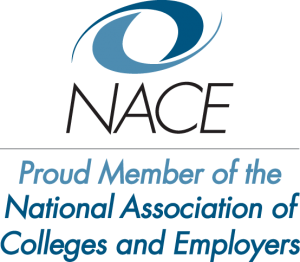As an individual born between the years of 1980 and 2000, I’ve had my fair share of encounters with that dreaded word. You know, the “M” word. Alright, I’ll say it…I’m a Millennial! While I have a number of thoughts about the label and the baggage that comes with it, I cannot argue with the fact that there are notable differences between generations in the workforce.
Numerous studies over the course of decades have embarked on a quest to identify and quantify such differences. A group of researchers from the Research and Training Center on Community Living at University of Minnesota wrote a paper summarizing many of the generational differences and similarities across four different workplace generations: the Traditional Generation (born around 1945 and earlier); the Baby Boom Generation (around 1945-1965); Generation X (around 1965-1979); and Generation Y (around 1979-2000), aka Millennials. It’s worth noting that we’re approaching a time where those born after 2000 (Generation Z) are about to enter the workforce too!
Generally, employees of the Traditional Generation are the oldest members of our workforce, though most are retired. They have been described as conservative, preferring a top-down chain of command, formality, and having a sense of respect. Baby Boomers are often characterized as employees who believe hard work and sacrifice are the keys to success; they are “confident task completers, and may be insulted by constant feedback”. Generation X employees are more autonomous and self-reliant than other generations; they also tend to be results focused, adaptable to change, and are not overly loyal to their employers. Individuals of Generation Y (Millennials) grew up with computers and dramatic technological advances. As employees, they value flexibility, work-life balance, and training and tend to be more entrepreneurial than process-focused. Millennials are also the most highly educated generation.
How Different Are We?
Loyalty Towards Employers – Traditionals and Baby Boomers value company commitment and loyalty, while Gen X employees tend to be less loyal to companies than previous generations. Millennials are committed and loyal to their employer when they are dedicated to an idea, cause, or product.
Work/Life Balance – Baby Boomers tend to sacrifice personal life for work while Gen X employees and Millennials value more work/life balance.
Preferred Leadership Attributes – Traditionals, Baby Boomers, and Gen X-ers prefer leaders who are described as credible and trusted. Millennials differ from other generations in that they prefer leaders who are described as a) good listeners, b) dependable, and c) dedicated.
How Similar Are We?
Our generations are more similar in the workplace than you’d probably think! The researchers at the University of Minnesota found that Baby Boomers, Gen X, and Gen Y (Millennials) were mostly similar in terms of reasons for staying in an organization, attitudes towards teamwork, attitudes regarding flexibility, most important aspects of workplace culture (rated as fairness and ethicality), and top values (rated as family and love).
Most importantly, all four generations rated “Feeling valued” as the top reason for happiness in the workplace.
What Does This Mean for Employers?
According to the Pew Research Center, as of 2015, more than one-in-three American workers are Millennials! Also, in 2016, Millennials overtook Baby Boomers as America’s largest generation. Clearly, the generational composition of our workforce is changing rapidly. Therefore, cultivating an awareness and acceptance of generational differences as they related to the workplace can become a business advantage if leaders understand how to manage employees within each generation.
Generational conflict in the workforce is more likely to stem from differences in perception rather than from valid differences, suggesting communication is key. Researchers at Minnesota suggest:
“Employers may also adjust how they communicate to younger workers. Suggestions include: providing employees with regular guidance as needed, keeping employees “in the loop”, building manager’s credibility with employees, making coaching/training an essential responsibility in regular reviews, linking performance evaluation directly with concrete action steps and implementing a technique called FAST feedback.”
Defining Common Ground
A generation is just a label used to identify individuals born in similar times or identify cohorts of individuals who experience major events at similar stages in their lives. While generational labels may help us understand differences related to attitudes toward work and workplace policies once an employee is already onboarded, do they help us to understand how well an employee will fit into an organization during the hiring process? Not really.
jobZology® assesses individuals’ “Workplace Preferences” which describe preferences for specific elements of organizational environments (e.g., stability and collaboration). Similarly, jobZology® studies the organizational environment of each employer we work with to identify the specific elements the company can provide for its employees.
By comparing individual preferences to a defined company profile, jobZology® enables organizations to find the employees that best fit their workplace. Meta-analytic research suggests that, when employees think they fit within their organizations, they tend to be more satisfied, committed, and have less intentions to leave their organizations.
So, don’t define individuals by their generational labels – use jobZology® to scientifically quantify their fit to your company; then, use generational information to better manage employees when they join your organization. By hiring the best fits for your company through predictive science and tailoring your managerial style, you can promote a positive workplace where individuals are aligned with organizational priorities, satisfied in their roles, and feel valued within your organization.







